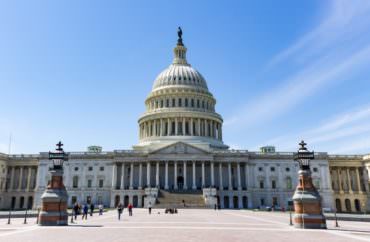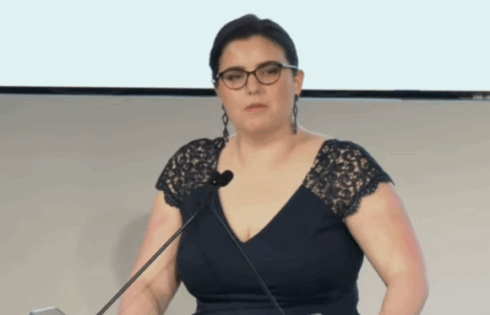
A new report from an influential conservative think tank calls on Congress to fix the college accreditation process and end accreditors’ stranglehold on higher education.
With the stated aim of returning “accreditation to its original function as a mechanism for quality assurance and improvement,” the report asks lawmakers to adopt several changes to the Higher Education Act as they work through its first reauthorization since 2008.
The report, published June 20 by the Heritage Foundation, is titled “It’s time for Congress to dismantle the higher education accreditation cartel.” It argues accreditation “is often a costly process for institutions, while offering little quality control, and it increasingly mandates ‘woke’ university policies.”
“Since so much of higher education has turned left, it should be no surprise that accreditors have followed the trend,” said education reform expert Adam Kissel, co-author of the report, in an email to The College Fix.
The accreditation process was originally envisioned as a “voluntary, peer review–based system of quality assurance,” but modern accreditation agencies have evolved into “gatekeepers for all federal student loan and grant programs,” the report states.
Heritage’s education reform scholars argue that what was once a voluntary system has become a “de facto requirement, with accreditation losing much of its value as a result.”
NEW REPORT: America's higher ed accreditation system is in desperate need of reform. The expensive process offers little quality control and increasingly mandates “woke” policies. Congress can take several steps to return it to its original function. https://t.co/goM1NeLFRV
— Heritage Foundation (@Heritage) June 20, 2023
Changes they suggest Congress could implement to rein in the power of rogue accreditors:
“Remove the monopoly still enjoyed by regional accreditors.”
“Prevent accreditors from using their gatekeeping power to impose inappropriate regulations on institutions.”
“Create an alternate path to Title IV funding eligibility.”
Allowing institutions to choose from multiple accreditation agencies nationwide would more easily allow universities to choose agencies that fit their goals while ending region-based monopolies, the report argues.
As in many regions around the country, until recently, most institutions had only one regional accreditor, opening the door to possible abuse of power.
An example of this abuse comes from the Southern Association of Colleges and Schools, which the report cites as “frequently and egregiously” abusing its power in such instances as in 2021 when it “politicized the chancellor search at the University System of Georgia to thwart the selection of a former governor.”
The report was released a few days before Florida Gov. Ron DeSantis and his Attorney General Ashley Moody sued the Biden administration, accusing it of trying to thwart a relatively new state law that works to break up the “accreditation monopoly.”
“The lawsuit accuses the Biden administration of abusing federal power by withholding federal funding from public colleges and universities that don’t get approval from private accrediting bodies,” Axios reported.
The Heritage Foundation report also calls for the removal of the so-called “elastic clause,” a U.S. code that grants accreditors wide-ranging authority to use their “gatekeeping power” to impose “woke” standards and impose restrictions to grant funding not laid out in the Higher Education Act.
When asked about the original intent of the “elastic clause,” Kissel told The College Fix that because accreditors existed before the Higher Education Act, the clause initially allowed accreditors to keep “standards that are not necessary for the purposes of participation in Title IV federal aid programs.”
However, this power has since been abused over the years by accreditors to impose, for example, racial quotas in enrollment or hiring, or to force diversity curriculum requirements or risk losing Title IV funding.
A solution is to allow institutions to gain Title IV funding through alternative means, such as demonstrating “outcomes consistent with an institution’s mission,” the report states.
By adopting these reforms, the report argues Congress could take “strong first steps” in “restoring accreditation as a voluntary and meaningful quality-assurance measure.”
Regarding the timeline, Kissel told The Fix that, realistically, “federal reforms will have to wait until 2025,” but the groundwork has been laid to produce productive solutions.
MORE: UNC-Chapel Hill journalism school denied full accreditation for lacking racial diversity
IMAGE: Shutterstock
Like The College Fix on Facebook / Follow us on Twitter






Please join the conversation about our stories on Facebook, Twitter, Instagram, Reddit, MeWe, Rumble, Gab, Minds and Gettr.